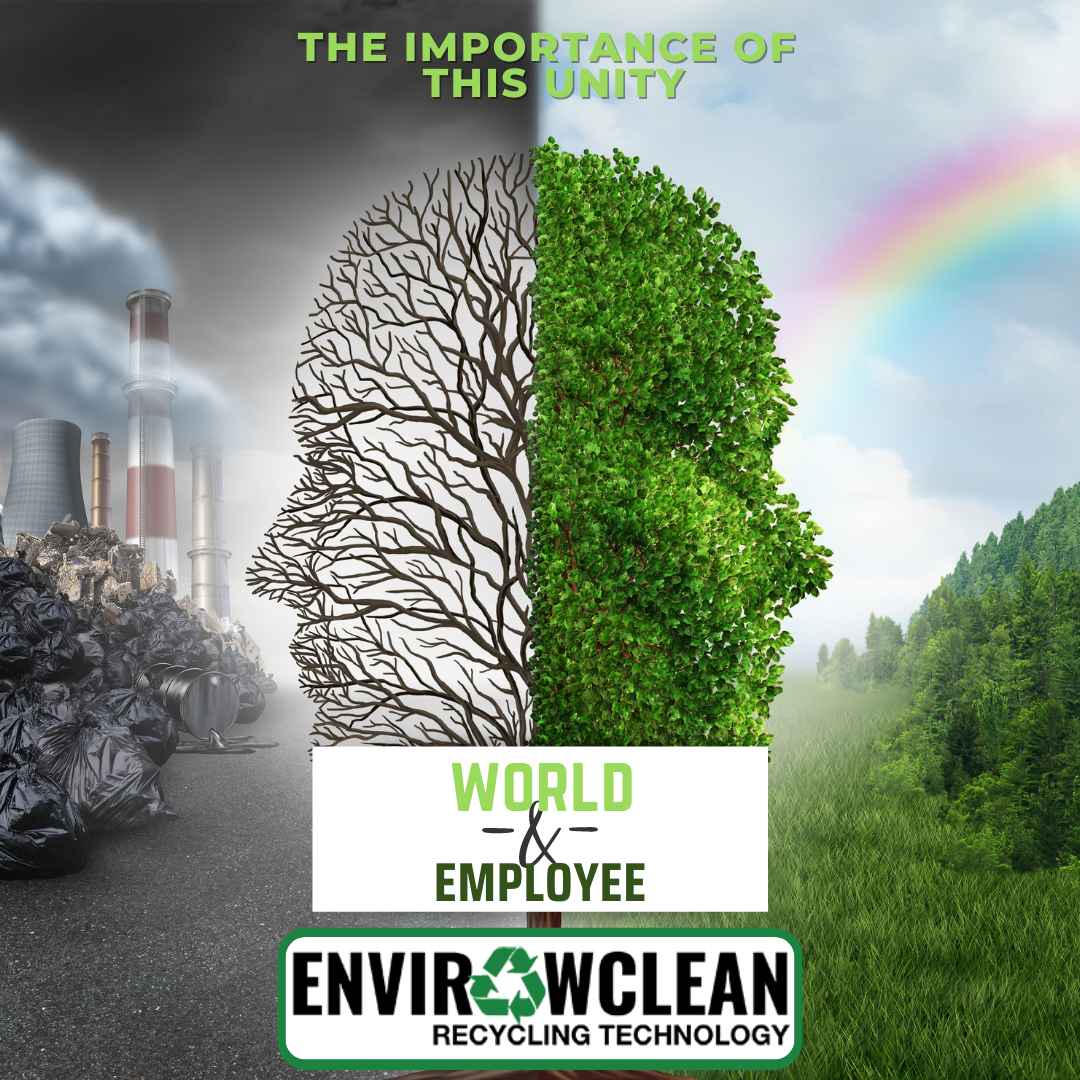In recent years, the importance of environmental sustainability has taken center stage in both personal and professional spheres. Organizations across various sectors are increasingly recognizing the value of incorporating sustainable practices into their operations. One key driver of this shift towards sustainability is the rise of environmentally conscious employees. This study explores how these employees impact their organizations, fostering a culture of environmental responsibility and contributing to the overall success of the business.
As part of these efforts, tools such as absorbent pads and oil absorbents in Tennessee (TN) have become vital in managing environmental impacts effectively. Additionally, the use of commercial recycling containers has been pivotal in promoting recycling and reducing waste in industrial and commercial settings.
The Rise of Environmentally Conscious Employees
Environmentally conscious employees, often referred to as “green employees” or “eco-minded workers,” are those who actively seek to reduce their environmental impact both at home and in the workplace. This group is characterized by a strong commitment to sustainability, a deep understanding of environmental issues, and a desire to make a positive difference through their daily actions.
Several factors have contributed to the rise of environmentally conscious employees:
- Increased Awareness: The proliferation of information about environmental issues, such as climate change and pollution, has led to greater awareness among the general population.
- Cultural Shift: Societal values have shifted towards sustainability, with consumers and employees alike expecting businesses to operate responsibly.
- Educational Influence: Environmental education has become more prevalent in schools and universities, equipping younger generations with the knowledge and passion for sustainability.
- Corporate Responsibility: Companies are increasingly being held accountable for their environmental impact, prompting a greater focus on sustainability in business practices.
The Role of Environmentally Conscious Employees in the Workplace
Environmentally conscious employees can have a profound impact on their organizations in several key areas:
-
Driving Sustainable Practices
These employees often take the initiative to promote and implement sustainable practices within their organizations. They may advocate for recycling programs, energy conservation measures, and the reduction of single-use plastics. Their proactive approach can lead to significant cost savings and a reduced environmental footprint for the organization.
Case Study: At a manufacturing firm, a group of environmentally conscious employees initiated a recycling program for industrial waste. This program not only reduced the company’s waste disposal costs but also diverted significant amounts of waste from landfills, improving the company’s sustainability metrics. They also introduced the use of absorbent pads to manage oil spills more effectively, further demonstrating their commitment to environmental safety.
-
Fostering a Green Culture
Environmentally conscious employees play a crucial role in fostering a culture of sustainability within the workplace. They can inspire their colleagues to adopt eco-friendly practices, creating a ripple effect that enhances the overall environmental performance of the organization.
Example: A technology company implemented a green office initiative led by its environmentally conscious employees. This initiative included measures such as reducing paper usage, encouraging public transport, and implementing energy-efficient lighting. The initiative’s success led to a company-wide commitment to sustainability. They also began using commercial recycling containers to streamline waste management and promote recycling in the workplace.
-
Enhancing Corporate Image
Companies that are known for their commitment to sustainability often attract environmentally conscious employees. These employees, in turn, help enhance the company’s image as a responsible and forward-thinking organization, which can improve customer loyalty and attract top talent.
Example: A financial services firm with a strong focus on sustainability attracted employees who were passionate about environmental issues. These employees helped the company develop green financial products and services, bolstering its reputation as a leader in sustainable finance. They also implemented the use of oil absorbents in TN to manage waste more effectively, showcasing the company’s dedication to eco-friendly practices.
-
Promoting Innovation
Environmentally conscious employees often bring fresh perspectives and innovative ideas for reducing environmental impact. They may suggest new technologies or processes that can improve efficiency and reduce waste, leading to both environmental and economic benefits.
Case Study: A food processing company implemented suggestions from its environmentally conscious employees to reduce water usage through innovative process changes. This not only reduced the company’s water consumption but also lowered operating costs. Additionally, they incorporated absorbent pads TN for better management of liquid waste, further enhancing their sustainability efforts.
-
Improving Employee Morale and Engagement
Working for an organization that values sustainability can boost employee morale and engagement. Environmentally conscious employees are often more motivated and committed to their work when they know their efforts contribute to a larger purpose.
Example: A survey at an apparel company revealed that employees who were engaged in the company’s sustainability initiatives reported higher job satisfaction and a stronger sense of purpose, leading to increased productivity and reduced turnover. The company also saw improved workplace safety and cleanliness through the use of oil absorbents TN, reflecting their employees’ dedication to maintaining a safe and eco-friendly environment.
The Organizational Benefits of Environmental Consciousness
-
Cost Savings
Implementing sustainable practices, often driven by environmentally conscious employees, can lead to significant cost savings. For example, energy-efficient technologies and waste reduction programs can lower utility bills and reduce disposal costs.
Example: A manufacturing company saved millions of dollars annually by adopting energy-efficient machinery and reducing waste, thanks to initiatives led by its green employees. The introduction of absorbent pads TN also helped them manage spills more cost-effectively, reducing both clean-up costs and environmental impact.
-
Regulatory Compliance
Companies that prioritize environmental sustainability are better positioned to comply with regulations and avoid fines or penalties. Environmentally conscious employees often stay informed about relevant environmental laws and can help ensure that their organizations meet compliance requirements.
Example: An industrial firm avoided costly fines by implementing a comprehensive waste management system suggested by its environmentally conscious employees, ensuring compliance with local environmental regulations. They also utilized commercial recycling containers to facilitate proper disposal and recycling of industrial waste.
-
Competitive Advantage
Companies that are seen as environmentally responsible can gain a competitive advantage. Consumers are increasingly choosing to do business with companies that demonstrate a commitment to sustainability, and environmentally conscious employees can help position their organizations as leaders in this area.
Example: A consumer goods company gained market share by promoting its eco-friendly products and sustainable practices. These were developed with significant input from its environmentally conscious workforce. Their use of oil absorbent TN also set a benchmark in the industry for effective and responsible waste management.
-
Attracting and Retaining Talent
Companies known for their sustainability efforts often attract top talent who value corporate social responsibility. Environmentally conscious employees are likely to be more loyal and engaged, reducing turnover and associated recruitment costs.
Example: A tech company’s strong focus on sustainability helped it attract highly skilled employees who were passionate about environmental issues. Their focus lead to a more engaged and productive workforce. They also implemented absorbent pads to manage spills and leaks. Integrating absorbent pads highlights their commitment to maintaining a safe and sustainable work environment.
Challenges and Considerations
While the impact of environmentally conscious employees is largely positive, there are challenges that organizations may need to address:
-
Balancing Priorities
Companies must balance environmental goals with financial and operational priorities. It’s important to ensure that sustainability initiatives align with the organization’s overall objectives and do not compromise its competitiveness.
-
Resource Allocation
Implementing sustainable practices often requires investment in new technologies and processes. Organizations must be prepared to allocate resources effectively and justify the long-term benefits of these investments.
-
Managing Change
Introducing new sustainability practices can require significant changes in how a company operates. Effective change management is crucial to ensure that all employees are on board and that new practices are implemented smoothly.
-
Measuring Impact
Quantifying the impact of sustainability initiatives can be challenging. Organizations need to develop robust metrics and reporting mechanisms to track the benefits of their efforts and communicate them effectively to stakeholders.
Environmentally conscious employees play a vital role in driving sustainability within their organizations. Their commitment to reducing environmental impact and promoting responsible practices can lead to significant benefits. This includes cost savings, improved corporate image, regulatory compliance, and a competitive edge.
At Envirowclean, we recognize the importance of environmentally conscious employees in shaping a more sustainable future. We provide a range of products, including absorbent pads and oil absorbent TN, to support your environmental initiatives and help create a safer, cleaner, and more efficient workplace. Our commercial recycling containers are designed to streamline recycling processes, making it easier for your organization to manage waste responsibly and comply with regulations.
By fostering a culture that values sustainability and supporting the efforts of environmentally conscious employees, organizations can not only enhance their environmental performance but also contribute to a more sustainable future for all. As more companies recognize the importance of environmental responsibility, the influence of these dedicated employees will continue to grow, shaping the business landscape for years to come.





